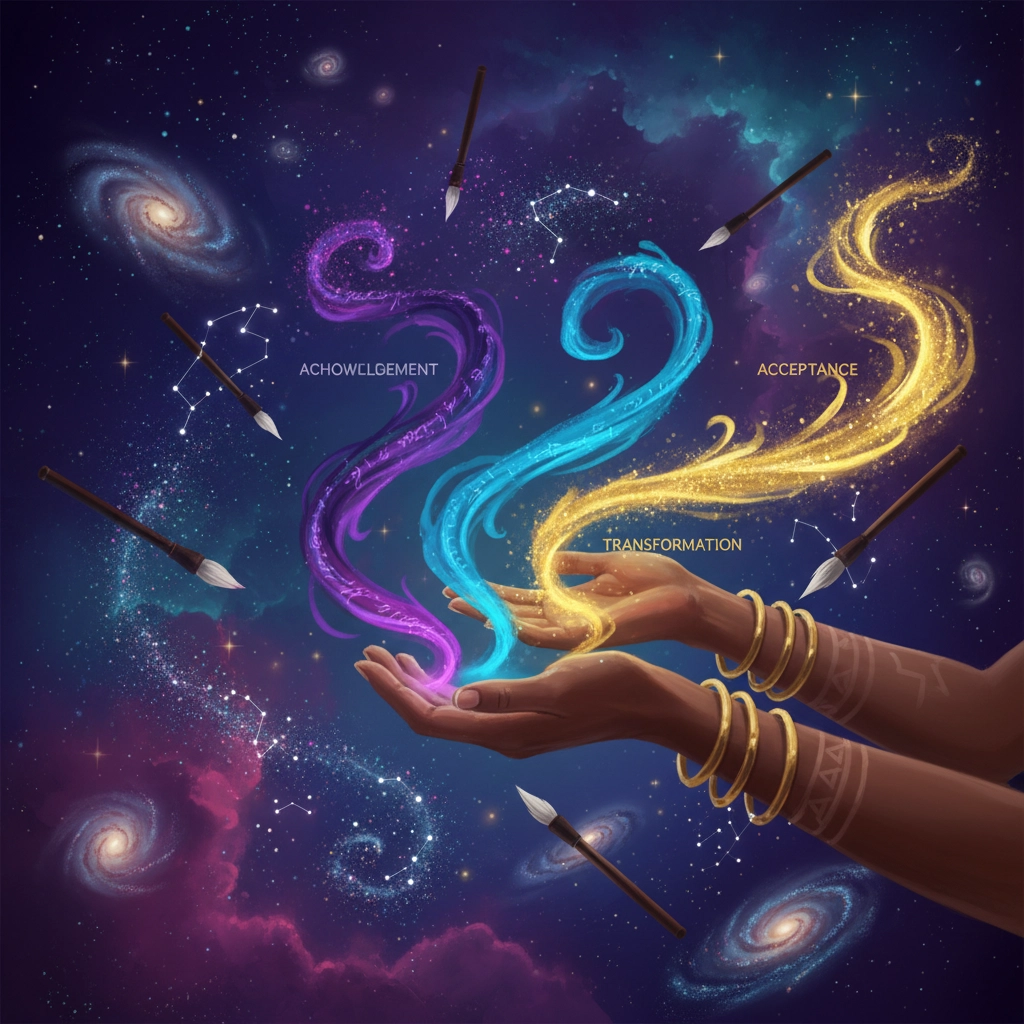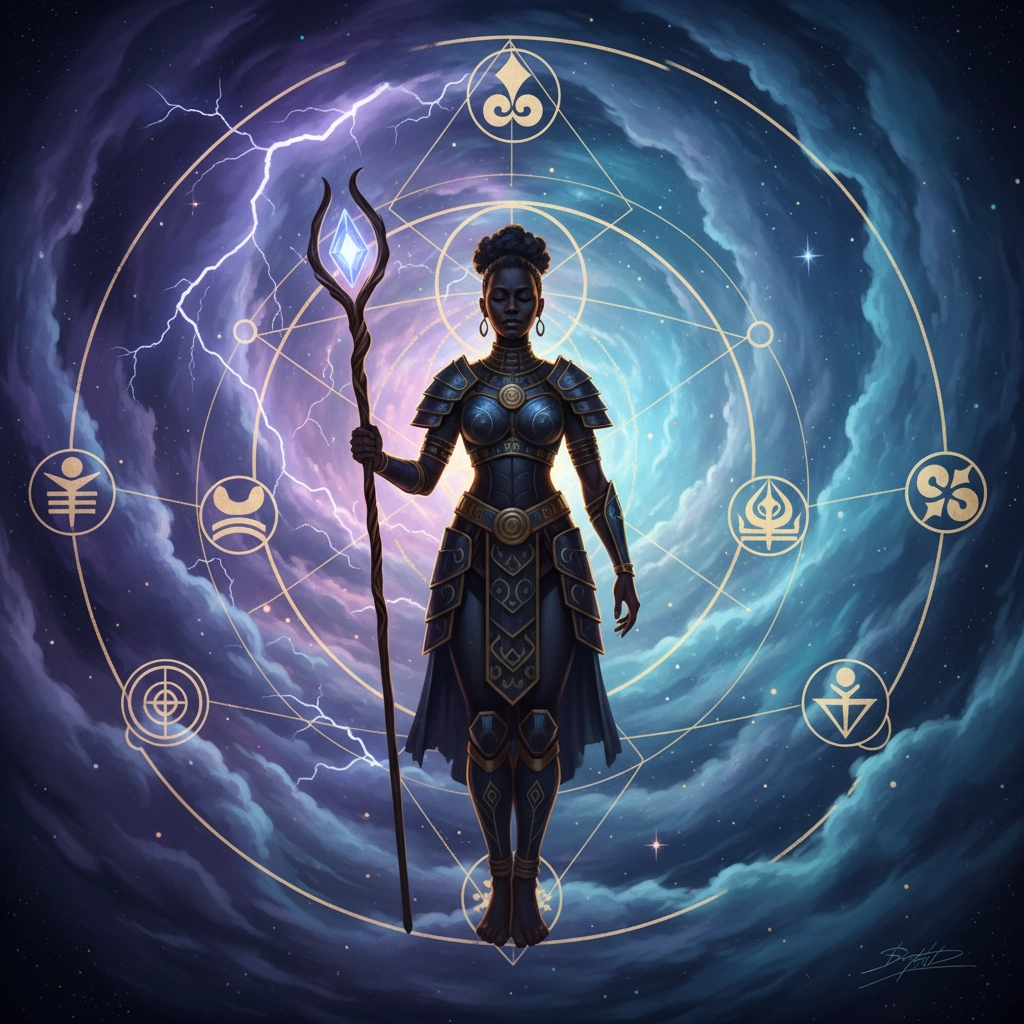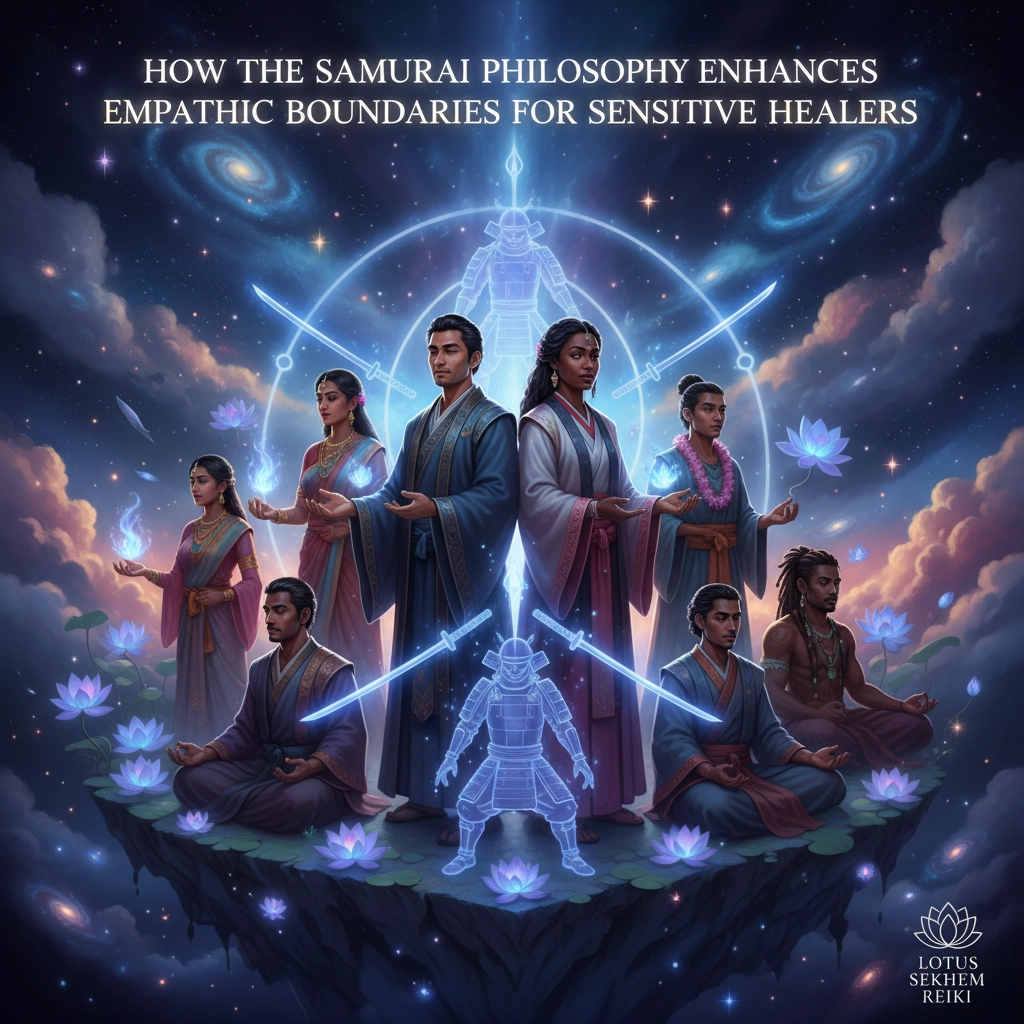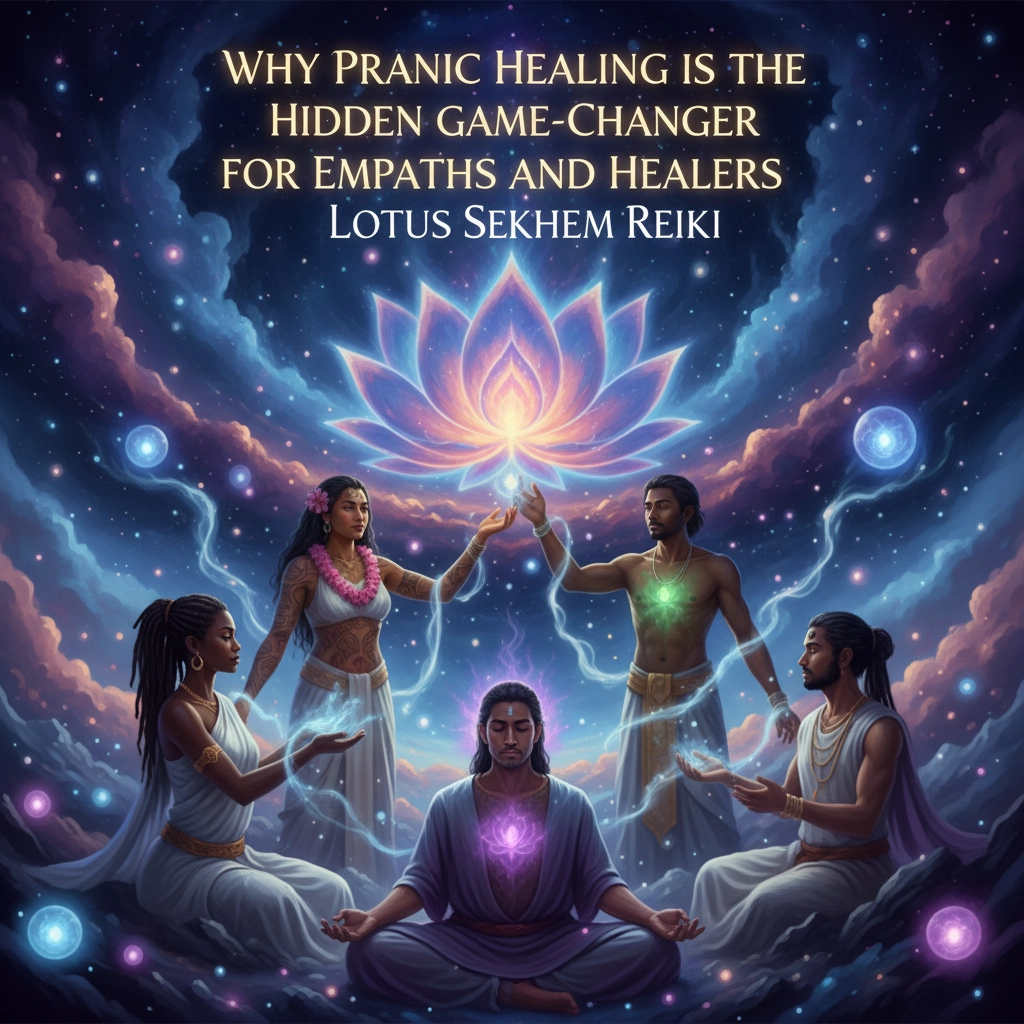Listen, if you're a sensitive healer reading this, I bet you've been there. You walk into a room and immediately feel everyone else's emotions like they're your own. You finish a Reiki session and feel drained instead of energized. You find yourself carrying clients' trauma home with you, tossing and turning at night because their pain has become your pain.
Here's the thing, being empathic isn't a curse you have to manage. It's a gift you need to master. And surprisingly, some of the most powerful boundary techniques I've discovered come from an unexpected source: the ancient samurai.
Yeah, you heard that right. Those disciplined warriors who lived by the code of Bushido? They knew something about maintaining energetic boundaries that we modern healers desperately need to learn.
The Real Truth About Control (And Why You've Been Doing It Wrong)
The samurai understood something that most empaths struggle with: you can only control yourself, never others. That's it. Full stop.
I know this sounds basic, but stay with me. How many times have you walked into a healing session thinking you need to fix someone? How often do you feel responsible for your client's emotional breakthroughs, or lack thereof?
The samurai had a saying: "I am not what happens to me. I am how I choose to respond to what happens to me." This isn't just philosophical fluff, it's the foundation of every strong boundary you'll ever build.
When you're working with someone's energy, you're not responsible for healing them. You're not responsible for their breakthrough. You're not even responsible for whether they feel better when they leave. Your only job? Showing up fully present and responding from your own center.
This shift changes everything. Instead of absorbing their anxiety about the outcome, you stay grounded in your own process. Instead of taking on their resistance, you honor where they are without making it about you.

Your Emotions Aren't the Enemy, They're Raw Material
Here's where the samurai really knew what they were doing. They didn't try to shut down their emotions or pretend they didn't feel deeply. Instead, they created what I call "emotional laboratories", deliberate practices that transformed feelings into power.
The tea ceremony wasn't just about drinking tea. It was emotional alchemy. One fold of the silk cloth acknowledged the emotion. The second fold accepted it. The third fold transformed it. Think about that for a second, they had a literal ritual for processing energy without getting stuck in it.
Their calligraphy practice was even more interesting. They called it "emotional surgery." Each brush stroke had to have the perfect amount of force. Too much? That was uncontrolled emotion bleeding through boundaries. Too little? That was suppression, which blocks the flow of healing energy.
What does this mean for you as a healer? Your sensitivity isn't something to manage, it's something to master. Those emotions you pick up during sessions? They're information, not infection. They're showing you where the work needs to happen, but they don't have to become your work.
Try this: Next time you feel someone else's emotion in your body, acknowledge it ("I see you, grief"), accept it ("You're here for a reason"), then consciously transform it ("I transform this grief into compassion for healing"). Don't rush through this. Let it be a practice.
The Art of Compassion Without Attachment
This is where things get really interesting. The samurai practiced something called Jin, benevolence or compassion. But here's the kicker: their compassion came from strength, not neediness.
Most of us healers, if we're being honest, get a little attached to our clients' progress. We want them to feel better because it makes us feel like we're good at what we do. We want their breakthrough because it validates our abilities. That's not compassion, that's attachment disguised as caring.
The samurai understood that real compassion means giving your best without needing a specific response. They could offer their presence, their skill, their energy, and then let go of the outcome completely.
Think of it this way: when you're attached to results, you're essentially making the session about you. Your energy gets tangled up with theirs because you need them to respond a certain way for you to feel successful. That's when boundaries collapse.
True empathic boundaries mean caring deeply without owning the outcome. You can feel everything they're feeling, hold space for all of it, and still remain sovereign over your own energy field. The samurai called this "standing in the point of zero", completely present but not dependent on external circumstances for your inner state.

Standing at Point Zero: The Ultimate Boundary Practice
Here's something most healing traditions get wrong: they try to eliminate all pain and trauma before you can be truly free. The Japanese approach is different. They teach you to develop resilience so you can move forward regardless of what's happening around you.
As a sensitive healer, this is gold. You're always going to be exposed to other people's pain. That's literally your job. The question isn't how to avoid feeling it, it's how to feel it without being destabilized by it.
The samurai practiced what's called mushin, "no-mind." This isn't about going blank or dissociating. It's about responding instinctively from your center without getting caught up in mental loops about what you're experiencing.
Here's what this looks like in practice: You're in session with a client who's carrying massive grief. Instead of thinking "Oh no, I'm feeling their sadness, I need to protect myself," you simply notice: "Grief is present. I am witnessing grief. I am not grief itself."
You stay present with what's there without making it your story. You can even let tears come if they want to, that's not taking on their emotion, that's your heart responding to the sacred work of healing. The difference is subtle but crucial.
Respect as the Foundation of All Boundaries
The samurai principle of Rei, respect, might be the most misunderstood aspect of boundary work. Most people think boundaries are about keeping others out. The samurai knew better. Boundaries are about honoring both yourself and the person you're serving.
When you don't maintain clear energetic boundaries, you're actually being disrespectful to your clients. You're saying, "I don't trust you to handle your own healing journey." You're also disrespecting yourself by not honoring your own capacity and limitations.
Strong boundaries are an act of love. They create the container within which real transformation can happen. When you show up boundaried, you're saying, "I respect you enough to stay in my lane, and I respect myself enough to maintain my own center."
This is especially important in energetic healing work. Your clients can feel when you're all over the place energetically. They can sense when you're trying to fix them versus holding space for their own healing process.

Practical Samurai Techniques for Everyday Healing Work
Alright, let's get practical. Here are some specific ways to integrate samurai wisdom into your daily practice:
Before Each Session:
- Take three conscious breaths and set the intention: "I serve from my center"
- Visualize yourself as a mountain: stable, grounded, unmoved by weather patterns
- Remind yourself: "I am here to witness and facilitate, not to fix or carry"
During Sessions:
- When you feel client energy in your body, silently say: "I see this, I honor this, I transform this"
- Practice the "one breath rule": for every emotion you sense, take one conscious breath before responding
- Stay curious rather than concerned: "What wants to be healed here?" instead of "How can I fix this?"
After Sessions:
- Literally shake your body to release any lingering energy
- Spend two minutes in gratitude for your ability to serve without attachment to outcomes
- Check in with yourself: "What's mine to keep? What's mine to release?"
Weekly Boundary Maintenance:
- Practice a form of moving meditation (like tai chi or even just mindful walking)
- Engage in something that requires precise focus: calligraphy, detailed artwork, even cooking
- Reflect on your week: Where did you stay centered? Where did you lose your boundaries?
The Integration Challenge
Here's what I want you to understand: being a sensitive healer with strong boundaries isn't a contradiction. It's mastery. The samurai weren't emotionless robots: they were deeply feeling humans who knew how to transform their sensitivity into strength.
Your empathic gifts are meant to be used in service, but not at the expense of your own well-being. The samurai way teaches us that true service comes from overflow, not depletion.
The question isn't whether you'll feel deeply: you will. The question is whether you'll master that depth or let it master you. Will you be a vessel for healing energy, or will you be a sponge that absorbs everything around it?
The samurai chose mastery. They chose to be warriors not because they didn't feel fear, but because they felt it and acted anyway. They maintained compassion not because they were naturally detached, but because they practiced detachment as an act of service.
You have that same choice every day, every session, every moment someone else's energy enters your field. You can be the empathic healer who goes home drained and overwhelmed, or you can be the empathic healer who serves from such a deep well that you actually feel more energized after sessions.
The samurai would tell you: the path of mastery isn't easy, but it's worthy. Your sensitivity is your superpower: now it's time to learn how to wield it with the precision and respect it deserves.
Ready to stop playing small with your gifts? Time to claim your warrior spirit and step into the mastery that's been waiting for you all along.



